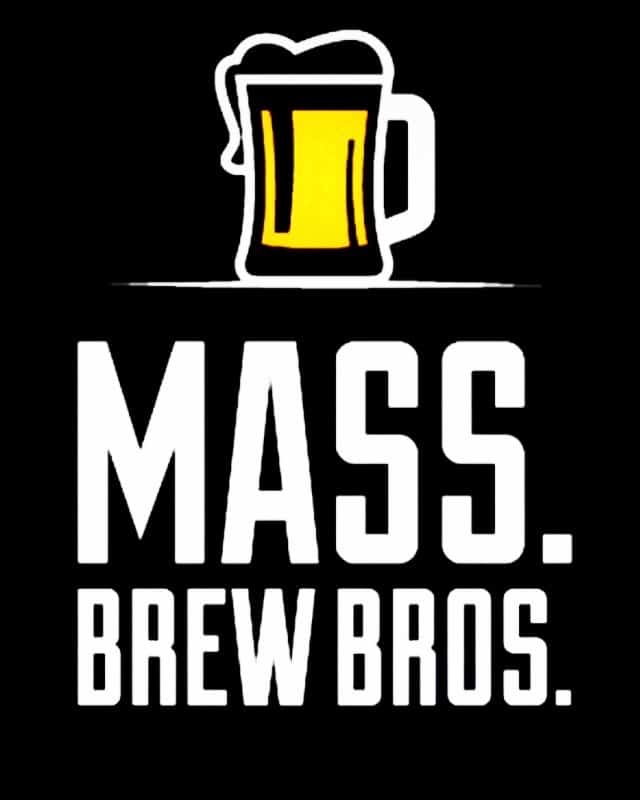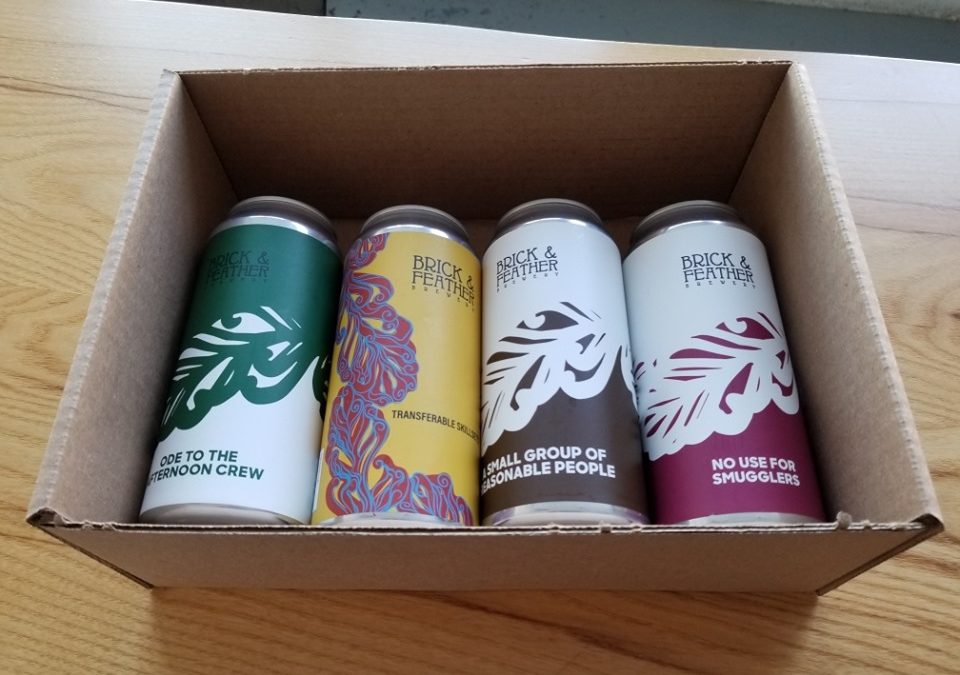As municipal recycling programs and waste management companies struggle to keep up with discarded plastic and its growing expense, some Massachusetts breweries are finding creative ways to curb their use of environmentally pesky can carriers. Marketed as “100% recyclable” by their manufacturers (some even have the chasing arrows symbol on them), those flimsy six-pack rings and rigid can handles are anything but in reality. The Mass Department of Environmental Protection (MassDEP) RecycleSmart website tool says “cut up rings to protect wildlife and put them in your trash bin.” It doesn’t list rigid can carriers among its catalogue of items, but almost every curbside recycling processor we checked with said those weren’t recyclable either. Part of the problem is their shape. In the recycling industry they’re known as tanglers because they wrap around the machinery and gum up the works. And because they’re flat, they often get missorted and end up contaminating paper and cardboard processing. The popular black ones can’t be detected by scanners because of their color. Ultimately, most end up going to the landfill or incinerator.
Admittedly, plastic can carriers are affordable, functional, and convenient for retail sales, but their lack of sustainability makes many consumers and some brewery owners uneasy. As a result, breweries around the state are reducing their reliance on them, reusing them whenever possible, and looking for ways to eventually recycle them. “We’ve been reusing them from the get-go,” said Untold Brewing co-founder Kyle Hansen, whose taproom in Scituate has a bin for recycling can carriers but no place to send them when it’s full. “We have the same problem with our PakTech recycling program that everyone does – nowhere to actually recycle them.” Malden’s Idle Hands hasn’t been able to get its program off the ground either according to founder Chris Tkach. “Rumor has it that a few recycling processors in the state might be interested in taking them, but only in very large quantities” said Tkach. Unfortunately, few if any taprooms in Massachusetts are able to collect the kind of volume that processors are looking for to make it worth their while.
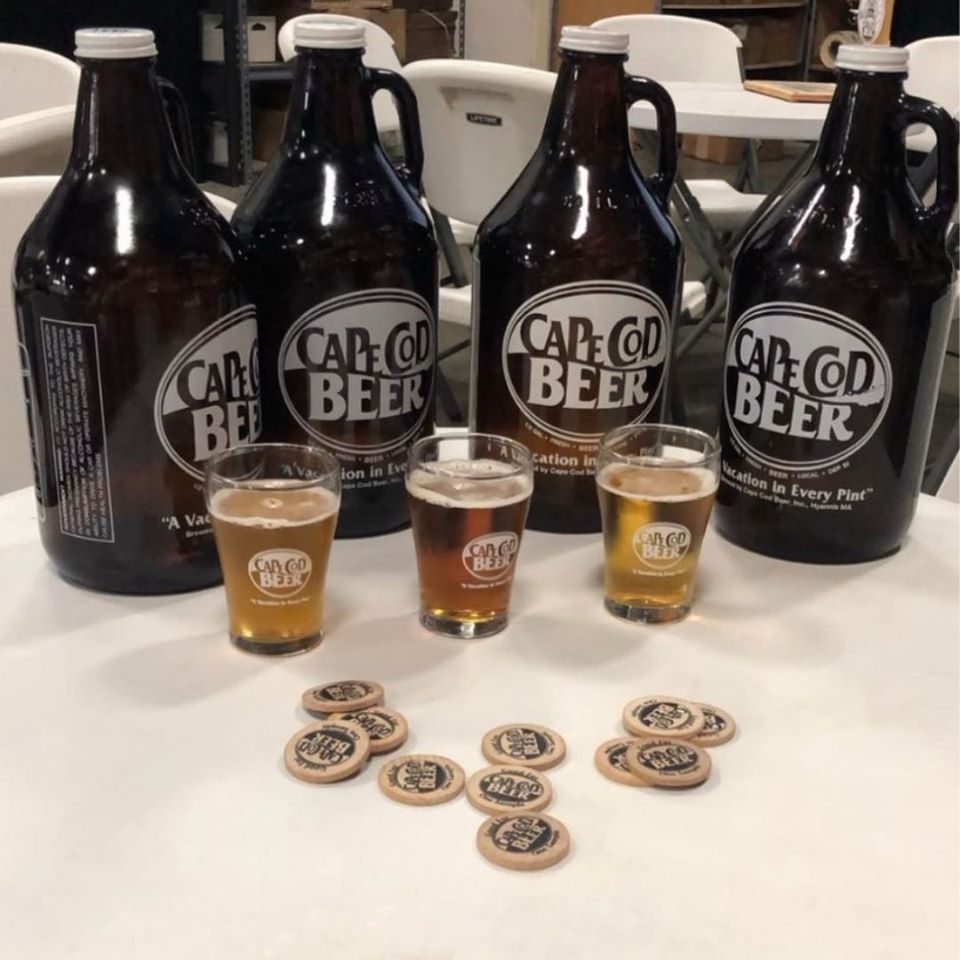
Cape Cod Beer limits taproom plastic use by offering refillable growlers and using glass sampling cups for tastings. They also offer a recycling take-back program for the photodegradable six-pack rings used to distribute their beer. (photo courtesy of Cape Cod Beer)
At Craft Beer Cellar in Belmont, social media coordinator Mary Mackenzie has been searching for a recycling partner to take their extra PakTech carriers also. Her store allows beer shoppers to pull single cans from four and six-packs, which they often tote up to the register in cardboard holders. That means an excess of plastic carriers no longer have an in-store purpose or an environmentally acceptable end-of-life solution that “closes the loop” in what plastic producers like to claim is a sustainable circular economy. Mackenzie says she’d love to find a solution similar to the partnership between a handful of breweries in Portland, Maine and bottle redemption processor Clynk, who accepts their collected can carriers and manually adds them to their automated plastic bottle bailing process as part of a current pilot program.
Until or unless a single stream HDPE #2 plastics processor in Massachusetts is willing to offer such an opportunity, Mackenzie and CBC Belmont are left with no option but to reuse as many carriers as they can. A number of smaller breweries are doing the same, and actually saving a little money in the process. At The People’s Pint in Greenfield, head brewer Chris Sellers says they typically outfit up to a quarter of their distribution and retail cans with carriers turned in by customers. In Plymouth, Second Wind Brewing founder Kenny Semcken estimates that 80 percent of his brewery’s cans employ reused carriers. He does’t have a formal collection program, but some retail industry colleagues and accounts he distributes to regularly save and return them to him.
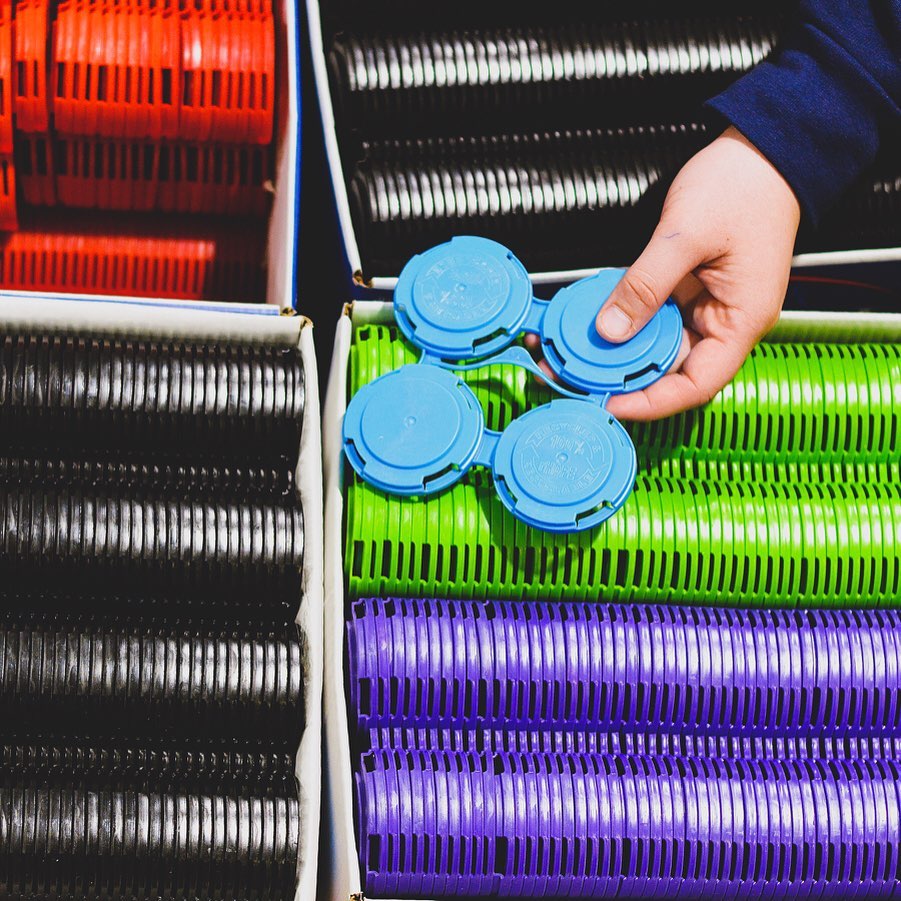
Among Untold Brewing’s 2020 goals are “being a more environmentally conscious business,” by participating in local beach clean-ups, decreasing single-use plastic at the brewery, and re-using as many collected PakTechs as possible.
Stone Cow Brewery in Barre was likely the first brewery in Massachusetts to start a formal can carrier reuse program. “The concept of reusing things is part of any successful farm,” explained founder Sean Dubois, who now relies solely on customer turns-ins for his supply and says he’s used some 22,000 since their “can carrier movement” started more than a year and a half ago. “Our loyal customers bring them in and we love them for it, says DuBois. “If something can be reused then it should be.” Likewise, Jim Hunt, Business Manager at newly opened Bull Spit Brewing on Kalon Farm in Lancaster, echoes that sentiment. His fledgling brewery has also found an enthusiastic customer base eager to supply them with enough can carriers to keep them from having to order any from manufacturers. “The feedback from consumers regarding our take-back program has been overwhelmingly positive,” said Hunt.
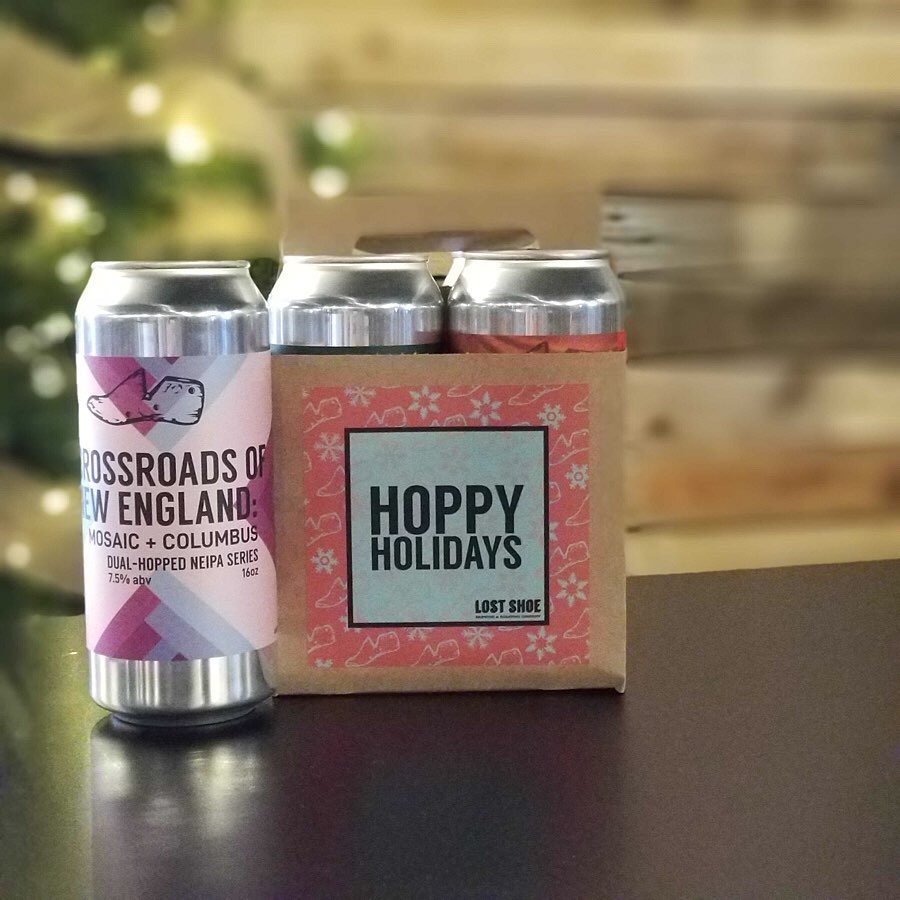
Lost Shoe Brewing in Marlborough, opted for highly recyclable and reusable cardboard can carriers to sell its holiday 4-packs rather than the more environmentally harmful plastic ones. (photo courtesy of Lost Shoe Brewing)
At Brick & Feather Brewery in Turners Falls, founder Lawrence George has taken his commitment to the environment even further by deciding to phase out use of plastic can carriers all together. Inspired by our “How to Be An Eco-Friendly Craft Beer Drinker” blog post back in June, he decided to take a page out of the Tree House Brewing playbook (they’ve never used can carriers) and opted to use boxes for on-site retail sales. Corrugated cardboard is recycled more often, just as reusable, and favored by most environmental groups when compared to plastic, though it’s no holy grail. For some real environmental salvation within the craft beer industry, consider how Pure Project Brewing in San Diego approaches the packaging conundrum. Its customers are expected to bring their own bag, cooler, or saved can carriers for taproom takeaway purchases. For distribution, they’ve embraced the truly biodegradable and compostable Eco Rings from E6PR and made popular by Salt Water Brewery in Florida. The result is zero plastic packaging waste associated with retail sales of their beer.
Several breweries we spoke to for this story had heard about the Eco Rings and said they’d be interest in trying them out. One of them was highly heralded Vitamin Sea Brewing in Weymouth, where founder Dino Funari said the issue of sustainable packaging is definitely on his radar. Like lots of others, his brewery currently collects and reuses PakTechs while he investigates cardboard and biodegradable packaging alternatives that have less of an impact on wildlife and the environment. A Hull resident who’s brewery was named after his love for the ocean, he’s intrigued by the eco-friendly E6PR packaging but apprehensive about making a hasty decision he might regret. “We’ve spoken to Pure Project and some other breweries, but haven’t settled on a solution just yet,” he says. “I think there’s a good story there [finding the right solution], and hopefully it will help other Massachusetts breweries too.” ![]()
Click here to take our five minute craft beer consumer survey
